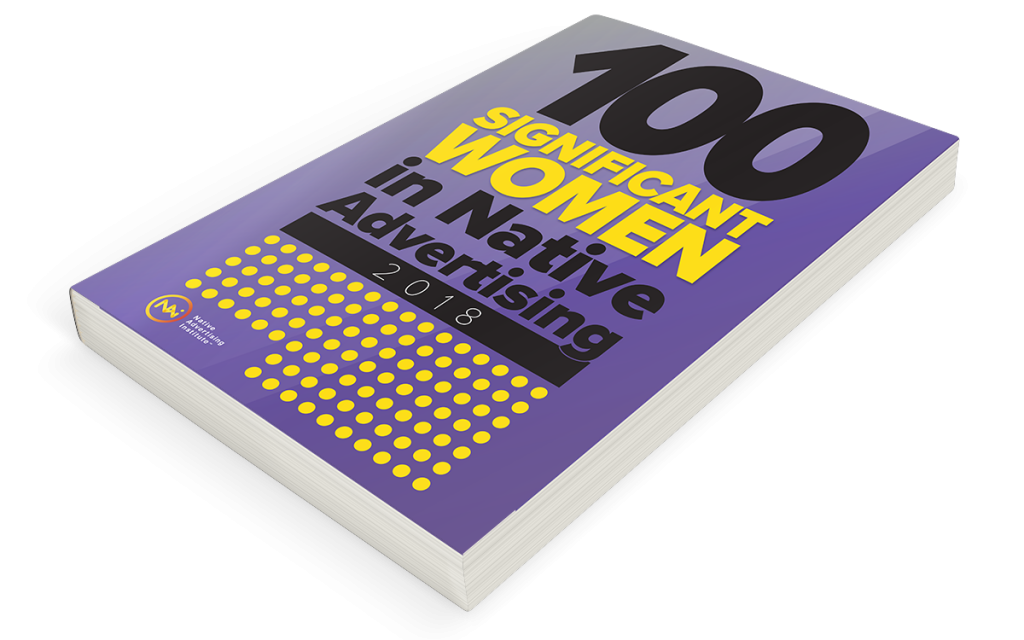 Details
Details
"Since I come from KIT Publisher that publishes primarily on social media, sometimes we get the question, 'so why should I be on social media?' from brands. And my question back is, 'why not?'" says Jonna Ekman, Marketing Manager at KIT.
We interviewed her when she was a speaker at Native Advertising DAYS 2017 about the increasing importance of social media.
Below are highlights from the interview which have been slightly edited for clarity.
Many publishers and brands still treat social media as some kind of a playground.
People no longer visit your site
"Because social media is increasingly important in everyone's life. We communicate there, we read newspapers there, we tell things about ourselves and read things about other people. So we spend a lot of time there. And all the numbers are showing that we are increasingly using social media in our lives.
So, of course, brands and publishers should be there and take it seriously. Many publishers and brands still treat social media as some kind of a playground, not taking it as seriously as they should. But I think they understand more and more that they should be there. The question is, what should they do there?
RELATED: How Brands Can Succeed with Content on Social Media
The thing that everyone is so afraid of is, "will I over publish things? will I just drown people in my content?"
Well, we trust the algorithms there. Because Facebook will not put things in your feed and again and again if you don't like it. So I think you can trust Facebook and let the algorithms work with you for once.
I think everyone should try to understand that we, as an audience, we no longer go to places.
Brands often think that they shouldn't publish things again on their Facebook page. But no one goes to your Facebook page so you can republish things as many times as you want.
And no one will go to your site. So you have to reach out to the audience. And that's why social media is so important because it's an easy and effective way to reach the audience you want to reach."
The problem is that every story doesn't have that kind of element in it.
You can't tell every story with a cat
"The most common way to work on social media is to optimize on subjects.
I've seen so many people talk about, how you get success in social: You should provoke, or you should use a cat, or you should put a cute baby in the story, talk to the heart and create emotions.
RELATED: Native Advertising That Works? 3 Takeaways from Award-Winning Examples
And that's a very good way to get attention in social media but the problem is that every story doesn't have that kind of element in it.
We can't tell every story with a cat. We can't tell every story with a little bit of racism in it, or a focus on women's rights or something else that provokes feelings.
Because if you want to talk about pensions or insurances, you need to talk about that."
It depends on what you want to say, and to who you want to say it.
There is no silver bullet
"What we've learned during our two-and-a-half years is that there are no silver bullets. There isn't one way to tell stories on social and it will reach everyone. The answer to the question, 'How do I tell stories on social media?' is that it depends. It depends on what you want to say, and to who you want to say it.
To solve this problem, we've invented Story Engine which is a platform for content creation where we categorize every piece of content that we publish in 17 different categories.
Because every journalist knows a lot about their own content that the platform doesn't know. So we've tried to translate that into data. Every piece of content we make we categorize it in, for example, editorial intent, what was the editorial intent of this piece, what's the tonality of this piece, what's the context of this piece, etc.
RELATED: Thinking Like a Journalist Will Make You Awesome at Native Advertising
And we've also built a platform so we can have the whole content creation chain on the same platform. We collect data from ideation to the very last distribution post on social media. And that's when the magic happens.
The platform can tell us that if you want to tell this story and get this effect you should do it this way. If you want to tell another story and have another effect you should probably tell it a completely different way. So we get specific recommendations for every job from Story Engine on how we should tell them on social."
You do need to understand that you need to create content that is actually really valuable for your readers.
Content trumps brands
"Another thing we've learned while working on social media is that content trumps brand. Brands will never be unimportant but I would never read a piece just because it comes from New York Times. And I would never refrain from reading a piece just because it comes from Red Bull.
I would read a piece if it is relevant to me. If I like it if I'm interested in it. And this means that brands will always be important, especially in these days when we're surrounded by fake news and we want to separate what's good and what's bad, but it always boils down to the fact that if the content is interesting enough for me, I would probably consume it.
RELATED: 5 Things Marketing Managers Need to Consider When Doing Native Advertising in 2018
We've solved it by creating story engine where we have a platform that recommends to us how we should tell every specific story. But if you don't have that, you do need to understand that you need to create content that is actually really valuable for your readers. Whether you're a publisher or a brand.
Which means that putting out only a little bit on social will never work because no one will find that interesting."
The simple equation of social media is: it's easy to distribute good content and it's difficult and expensive to distribute bad content.
It's expensive to distribute bad content
"The thing you have to remember in social media is that we're actually competing with everything.
You might say that we've always competed with people's time. But on social, you truly compete with everything. You compete with your best friend's new baby, the wedding you went to last week, you even compete with your own updates that you check out to see if anyone likes it or shares it.
RELATED: "When Everybody's Doing Perfect Content, Distribution Is King"
And you also compete with all the great journalism around the world, and you also compete with all the commercial messages that commercial companies want to send out to me at the same time. So the competition on social media is amazing.
So, how do we reach through on social media when we compete with everything? Well, first of all, people talk about distribution. And distribution on social media is quite important. But it's not that important because good distribution and bad distribution have an effect but not that big an effect.
The big effect will come from content. Because the difference between putting out good content and bad content can be like a thousand times. You can get a thousand times bigger spread when you create the right content. So the simple equation of social media is: it's easy to distribute good content and it's difficult and expensive to distribute bad content."
Jonna Ekman is featured as one of "100 Significant Women in Native Advertising 2018" - Download the ebook here.




